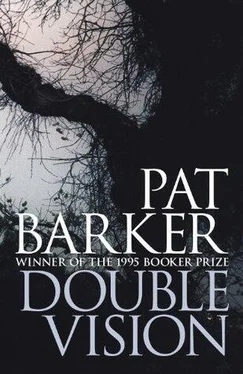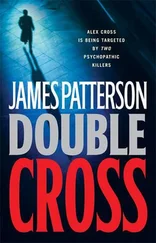Kate, meanwhile, had walked over to the far corner where there was a screen displaying some of Ben’s photographs. He joined her there and glanced across them. As she’d said, these were mainly from the last trip to Afghanistan. One showed a group of boys on the border between Afghanistan and Pakistan, ragged, thin, peering out at the camera from behind a fence, and flashing mirrors into the sun to blind the photographer. A flash of light had whited out the face of the boy holding the glass, so in a narrow technical sense the picture was a failure. Further along, a man’s face, distorted with anger, one hand half covering the lens. Another was of an execution. A man on his knees staring up at the men who are preparing to kill him. But Ben had included his own shadow in the shot, reaching out across the dusty road. The shadow says I’m here. I’m holding a camera and that fact will determine what happens next. In the next shot the man lies dead in the road, and the shadow of the photographer, the shadow of a man with a deformed head, has moved closer.
This wasn’t the first execution recorded on film, nor even the first to be staged specially for the camera, but normally the photographer’s presence and its impact on events is not acknowledged. Here Ben had exploded the convention.
‘I’d like to use those,’ Stephen said. He was thinking that Ben might almost have taken them for the book.
‘They were sent back after…’
Right at the bottom left-hand corner he saw another photograph, this time of Soviet tanks, disused, rotting, corroded with rust. This mass of military debris filled most of the frame, so that from the viewer’s angle they seemed to be a huge wave about to break. Behind them was a small white sun, no bigger than a golf ball, veiled in mist. No people. Hardware left behind after the Russian invasion of Afghanistan: the last war. But the composition was so powerful it transcended the limits of a particular time and place, and became a Dies Irae . A vision of the world as it would be after the last human being had left, forgetting to turn out the light.
‘That’s a great photograph,’ he said, knowing he would have to find a way to use it.
‘Yes.’ She was struggling with tears again, not looking at it. He wondered if she knew it had been taken seconds before Ben died.
All this time he’d been aware of the plaster figures on the edge of his vision, and when he turned round he felt compelled to count them again. No, still seven. They hadn’t been breeding while his back was turned. He remembered reading that Arctic explorers sometimes suffer from the delusion that there is one more person present on the trek than can actually be counted. He couldn’t see any reason why that would apply here, unless the overwhelming whiteness of the room was a factor.
Everything was white, even the floor. During the day the northern light would bounce off every surface, leaving the room, as far as possible, shadowless. Perhaps that was enough to create a mild form of sensory deprivation. He wondered if Kate was aware of it, whether she too suffered from a compulsion to count the figures.
‘Would it be all right if I came over sometime and looked through the prints?’
She nodded at once. ‘Good idea.’
She sounded cheerful, as if the prospect of somebody working in Ben’s room revitalized her. This had been so much a place where two people lived, worked, talked, squabbled, drank, cooked, made love. And yet Ben had been away for six weeks at a time. She must be used to being alone.
The place was making him uneasy. He went to the window and looked down at the pond, where the last light of evening clung to the water. The overhead lights were reflected in the glass, making him feel vulnerable to the outside world, to the dark hillside. He turned and saw a man standing in the doorway. He was wearing a dark coat and had come in so quietly that he might have been there for a while before Stephen noticed him.
Kate followed the direction of his gaze. ‘Oh, come in, Peter. This is Stephen Sharkey. A friend of Ben.’
Peter was tall, good-looking, with pale, watchful eyes. He nodded to Stephen.
‘I’ve got the hessian, but they only had the really thin stuff. I said I’d take a roll and ask you.’
‘I’ll have a look.’
Stephen and Peter were left alone in the cavernous interior, surrounded by the white figures.
‘So you’re Kate’s assistant.’
‘Yes, I do the lifting. It’s just a temporary job.’
‘I can’t imagine how it happens. I mean, how does that’ — he pointed towards the huge, plaster figure — ‘turn into bronze?’
Peter smiled. ‘The lost-wax method. Just don’t ask me what it is.’
‘You’re not a budding artist, then?’
‘No, I just do odd jobs. Gardening, mainly.’
Kate came back. ‘That’s fine. I don’t mind it being thin as long as the weave’s coarse enough. We could do with another two bales.’
‘Do you want me to get them now?’
‘If there’s time.’
‘No problem.’
He raised his hand to Stephen and went out. A moment later they heard the cough and sputter of an engine.
Kate smiled. ‘I don’t know how he keeps that thing on the road.’
She sounded preoccupied, gazing up at the big figure. Stephen took the hint and went back to the photographs, but continued to watch her out of the corner of his eye. Now that she was absorbed in her work, he felt he was seeing her clearly for the first time. Not an easy woman to get to know. The rather jolly outgoing manner disguised a formidable inner reserve. If he’d met her at the church fête, or organizing a jumble sale, or whatever women like her — he meant women with that rather clipped, upper-class accent — found to do in the country, he wouldn’t have attributed very much to her in the way of an inner life. Yet obviously she had, and not a comfortable one either. She’d got the chisel out now and was trying to reshape part of the upper thigh, but almost at once she stopped, grimacing with pain. ‘Bugger it.’
The sound of her own voice seemed to remind her she was not alone. ‘I shouldn’t be doing this,’ she said, with a slight, embarrassed laugh. ‘I’m too tired.’
‘It’s time I was off anyway. I’ll give you a ring, shall I, to arrange when I can come over?’
‘Any time. I’m always here.’
They walked together to the door.
‘What’s Peter’s other name?’
‘Wingrave.’
‘He’s very striking-looking.’
‘Yes.’ She smiled. ‘You didn’t like him.’
He shook his head. ‘I haven’t seen enough of him.’
It was acute of her to detect the reserve he’d felt on meeting Peter, though it wasn’t a matter of dislike. He hadn’t asked himself whether he liked him or not — though remembering the sudden, warm smile he rather thought he had — but he sensed instability. He’d been in so many dangerous places he’d learnt to decide on the spot whom he could trust, and he wouldn’t have wanted Peter watching his back.
‘It’ll be nice having somebody using Ben’s room,’ she said, as they walked out into the yard.
‘You don’t use it?’
‘No, I just leave it locked up.’ A twist of the dry lips. ‘Sometimes I think he’s in there, you see, working, and it’s quite a soothing feeling. I’m in the studio, he’s over there, and in a few minutes we’re going to meet and have a drink. And as long as I think that, I can keep going.’ A little self-conscious laugh. ‘I know it’s not healthy.’
‘People survive whichever way they can. I’m quite sure a lot of the things I do aren’t healthy.’ She looked so sad standing there that once again he had the urge to reach out and touch her. Instead he said, ‘I don’t know if Ben mentioned it, but my marriage broke up.’
Читать дальше












